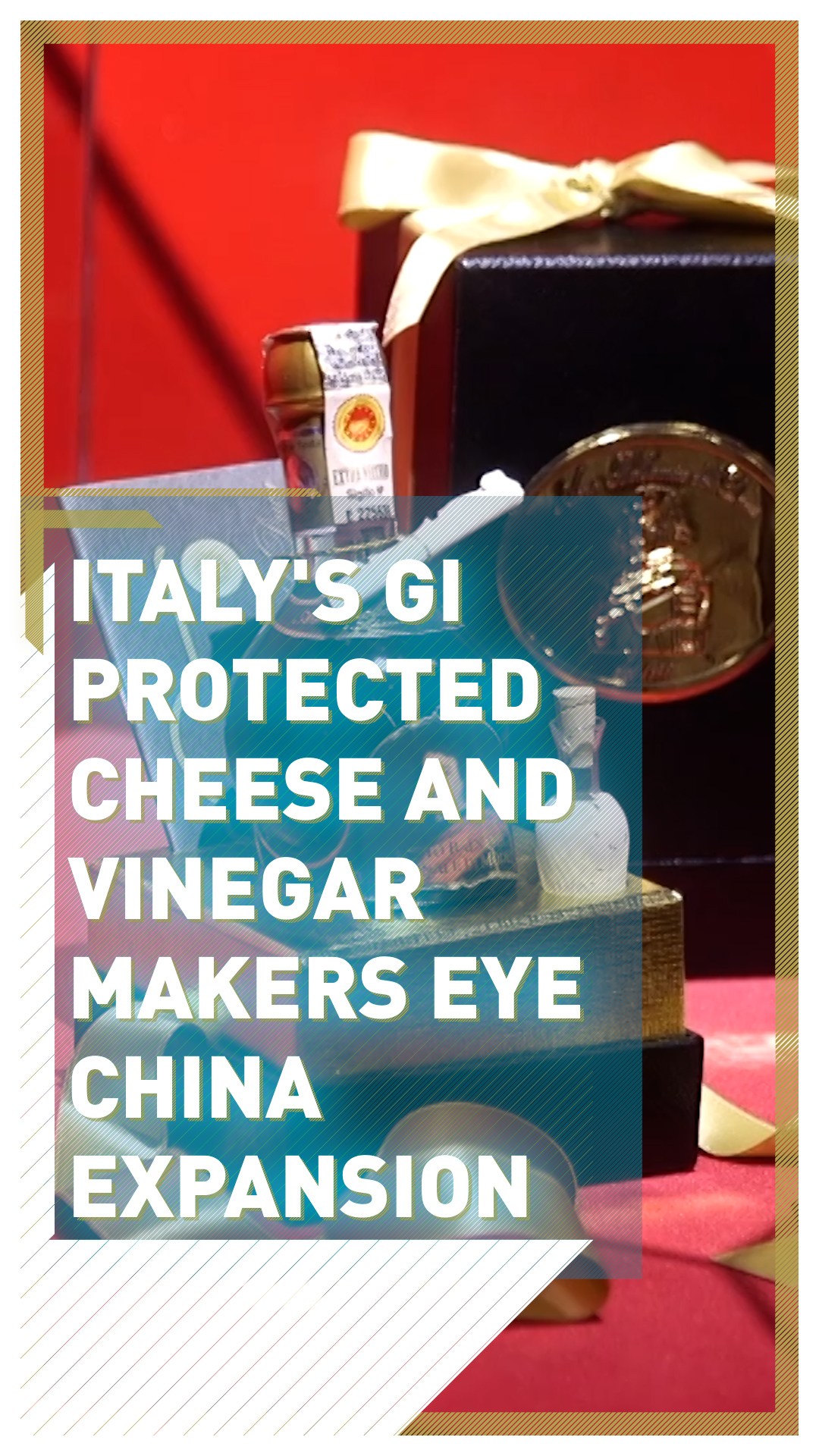02:48

Producers in Italy say the recent Geographical Indication agreement between the European Union and China signifies a priceless economic and cultural exchange.
The deal, which comes into force at the beginning of 2021, means the two sides will protect the names of 100 European local food classifications and 100 Chinese equivalents.
In total, 26 "Made in Italy" items are a part of the deal, including Modena's Balsamic Vinegar.

Mariangela Grosoli, president of the Balsamic vinegar of Modena Consortium, said: "Undoubtedly this bilateral agreement protects both the producers and products from imitations. But, above all, there is consumer care, that those overseas can be assured that the product they are buying is original and real.
Dating back to 1747, it's [Modena's balsamic vinegar] a product of significant cultural importance."
Federico Desimoni is the general manager of the consortium. He said it's about more than simply exporting a product: "So when we sell Balsamic vinegar of Modena, in some way we sell the soul of Modena, of our land and people, of our family and our history, so it’s an exchange of culture."
It's produced from seven different grape varieties, typical of the Emilia-Romagna region. The must of the grapes is mixed with the wine vinegar and left to rest in wooden barrels for several months or years.
Balsamic Vinegar of Modena is Italy's biggest GI export product. Last year, 95 million liters were produced and sent to more than 120 countries and while China is not a big market yet, producers say it will be a major market in the future.
Another product on the prestigious list is Parmigiano Reggiano, otherwise known as parmesan cheese.
Giovanna Rosati works at several dairy farms across the Parma area. She says it's a "super-food and a perfect example of what a Protected Designation of Origin product is."
From farm to fork, the process is simple but steeped in tradition. For centuries, the key ingredients of this hard cheese have remained the same. "An exceptionally high-quality milk, rennet and salt. So, no additives and no anti-fermenting agent, nothing."

Parmigiano Reggiano, otherwise known as parmesan cheese, has received GI protection. /CGTN
Parmigiano Reggiano, otherwise known as parmesan cheese, has received GI protection. /CGTN
Last year, just 1,000 wheels were exported to China. However, it's hoped the market could soon reach the level of Japan, where 35,000 wheels are sent each year.
The general manager of the Parmigiano Reggiano Consortium, Riccardo Deserti, says the key is developing a link between the characteristics of the cheese and its use in Chinese gastronomy because "at this stage the Chinese people don't know our cheeses and how they can be used. The potential is very high."
There are high expectations for this new agreement as Italy, and Europe, hope for a more prosperous 2021.
Video editing: Sam Cordell

